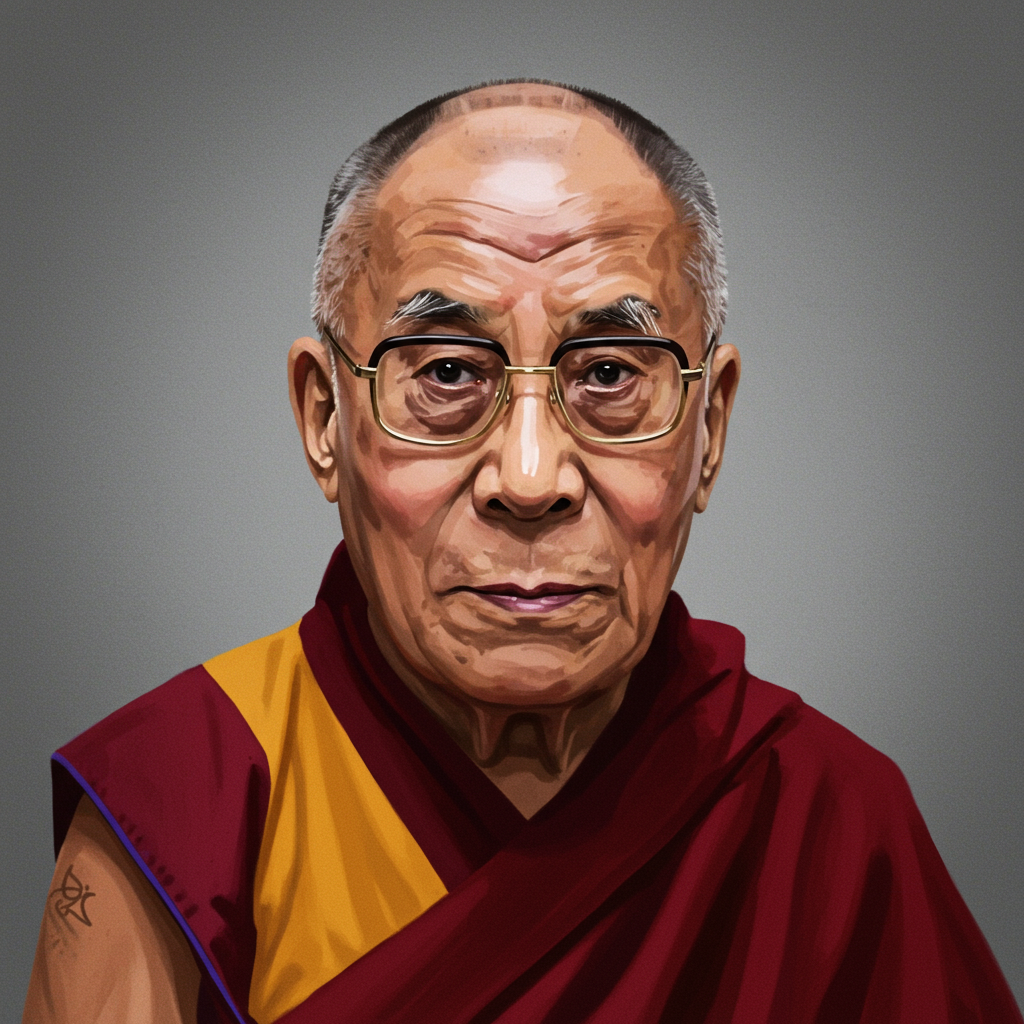An unexpected moment at a Beijing military parade provided a rare glimpse into the private ambitions of two of the world’s most powerful leaders. Russian President Vladimir Putin and Chinese President Xi Jinping were caught on a hot mic discussing nothing less than human immortality and the potential of organ transplants to achieve it. This startling exchange, aired during live state media coverage, has sparked global speculation about their personal fascinations and the deeper geopolitical implications of their pursuit of indefinite power and extended life.
The Unveiled Conversation: Immortality Whispers
The incident unfolded on September 3, 2025, during a grand ceremony in Tiananmen Square, commemorating the 80th anniversary of the end of World War II. As Putin and Xi walked at the head of a delegation, including North Korean leader Kim Jong-un, their seemingly private discussion was inadvertently broadcast. Putin’s interpreter was clearly heard conveying the Russian leader’s thoughts in Chinese. “Biotechnology is continuously developing,” the interpreter stated, continuing, “Human organs can be continuously transplanted. The longer you live, the younger you become, and [you can] even achieve immortality.”
Xi Jinping, though off-camera, responded to this provocative assertion. His interpreter then relayed his words, noting, “Some predict that in this century humans may live to 150 years old.” Putin later confirmed these discussions with reporters, reiterating that they had explored prospects for significantly increasing human life expectancy. The casual, yet profound, nature of this exchange immediately highlighted a shared fascination with pushing the boundaries of human existence, raising questions about its roots in personal ambition and political strategy.
Power, Longevity, and the Quest for Indefinite Rule
The discussion on Putin Xi immortality takes on a particularly potent meaning when considering the political trajectories of both leaders. Both Vladimir Putin and Xi Jinping have meticulously dismantled traditional term limits, effectively paving the way for them to remain in power indefinitely. Xi abolished presidential term limits in 2018, while Putin similarly altered Russian law, securing his long-term tenure in high office. This backdrop suggests that their interest in life extension technologies may not be merely academic but deeply intertwined with their desire to maintain control and influence for decades to come.
Observers often note a preoccupation with health and longevity among powerful authoritarian figures. For leaders like Putin and Xi, who command vast nations and project global influence, the concept of overcoming biological limitations could merge with their political aspirations, offering the ultimate extension of their authority. The conversation underscores a strategic mindset that extends beyond conventional political timelines, hinting at ambitions that defy mortal constraints.
Russia’s Deep Dive into Anti-Aging Science
Russia, particularly under Putin’s influence, has shown a long-standing fascination with anti-aging and biotechnology. This interest is not confined to the leader himself but permeates sections of Russia’s elite. In 2024, Putin notably instructed lawmakers to establish a research center titled “New Health Preservation Technologies.” This initiative focuses intently on combating the effects of aging, specifically targeting:
Technologies that prevent cellular aging.
Neurotechnologies.
- Other innovations aimed at ensuring longevity.
- www.bbc.com
- www.theguardian.com
- meduza.io
- www.japantimes.co.jp
- futurism.com
Further insight into Russia’s dedication to this field comes from independent investigations. Mikhail Kovalchuk, a long-time family confidant of Vladimir Putin, reportedly leads Russia’s immortality research efforts. Meduza, an independent Russian outlet, suggests Kovalchuk is “obsessed” with the subject. He has reportedly invested in organ-printing technology that utilizes lab-grown cells to produce replacement organs, showcasing a tangible commitment to advanced biological solutions.
Moreover, Putin’s eldest daughter, Maria Vorontsova, an endocrinologist, plays a significant role in this grand ambition. She has received substantial multi-million-dollar Russian government grants to study cell renewal and methods to extend human health and longevity. Vorontsova is involved in a genetic research program closely linked to Kovalchuk. The US State Department, when imposing sanctions on her in 2022, cited her leadership of Kremlin-funded genetics programs valued at billions, highlighting the scale of these national-level initiatives.
China’s Grand Geopolitical Stage and Vision
The setting for this extraordinary conversation—China’s largest-ever military parade—was itself a powerful statement. Featuring 50,000 spectators and a vast array of military hardware, from tanks and drones to nuclear-capable missiles and stealth aircraft, the parade served as a potent display of defiance to the West. Xi Jinping, in his formal address, reinforced this message. He declared that the Chinese people stood firmly “on the right side of history,” asserting that China was a “great nation” that was “never intimidated by any bullies.” This was a thinly veiled reference to the US and its allies, adding that China was “unstoppable.”
The joint appearance of the Chinese, Russian, and North Korean leaders—Xi, Putin, and Kim Jong-un—was particularly symbolic. It marked their first public gathering together, sending a direct message to Western nations that have sought to isolate them. The parade was attended by 24 other dignitaries, including the presidents of Belarus and Iran, further solidifying a perception of a growing bloc challenging the existing global order. This backdrop of geopolitical posturing lends another layer of interpretation to the Putin Xi immortality discussion: perhaps their personal desire for extended life mirrors their ambition for their nations to have enduring, unchallenged global influence.
The Science of Immortality: Reality Versus Aspiration
While the dialogue between Putin and Xi was certainly provocative, the scientific community holds a more cautious view on the immediate prospect of achieving human immortality or even significantly extending life to 150 years through current technologies. The article from Futurism points out that while new donor organs can extend a patient’s life, they are “far from a permanent fix” and do not offer a definitive path to living substantially beyond typical life expectancy.
A critical challenge remains the “perpetual short supply” of donor organs. This scarcity has led to intensive research in areas like xenotransplantation, where scientists explore transplanting organs from different species, such as pigs, into humans. However, even these advancements face considerable hurdles and are still in experimental stages. Xi’s prediction of humans living to 150 years within this century is viewed with skepticism by many scientists, who emphasize that the biological complexities of aging are far from fully understood or reversible.
The conversation also touched upon broader societal concerns. Putin’s remarks, according to some analyses, could stem from concerns about plummeting population levels in both Russia and China. China’s population is projected to decrease significantly within 30 years, exacerbated by economic pressures and the legacy of its “One Child Policy.” Russia faces similar alarming rates of population decline, intensified by ongoing conflicts. Increasing life expectancy is a stated goal for both nations, though the ambitious predictions overheard on the hot mic suggest a far more radical approach.
Frequently Asked Questions
What exactly did Putin and Xi discuss on the hot mic?
During a military parade in Beijing, Russian President Vladimir Putin and Chinese President Xi Jinping were overheard via a hot mic discussing the potential for human immortality and extreme life extension through biotechnology. Putin’s interpreter conveyed ideas about continuous organ transplants leading to perpetual youth and immortality. Xi responded by mentioning predictions of humans living to 150 years old within this century. The conversation highlighted their shared interest in advanced medical science and human longevity.
Why are Putin and Xi reportedly interested in extreme longevity?
Their reported interest in extreme longevity appears to be multifaceted. On a personal level, both leaders are known to be highly concerned with their health, as suggested by the Japan Times. Politically, their pursuit of indefinite rule – with both having abolished presidential term limits – creates a strong parallel between personal life extension and the extension of their political power. Russia, in particular, has established state-funded anti-aging research centers and programs, led by key figures linked to Putin, indicating a national-level commitment to this field.
Is achieving human immortality through biotechnology scientifically possible today?
Currently, achieving human immortality or living to 150 years through biotechnology or organ transplants is not scientifically possible. While advancements in medicine and transplantation can extend lifespan and improve quality of life, organ transplants are not a permanent fix and face challenges like donor scarcity. Research into areas like xenotransplantation and cellular aging continues, but the scientific community remains largely skeptical of such ambitious predictions within the near future. The complexities of human biology and the aging process present significant hurdles that are still far from being overcome.
A Glimpse into Tomorrow’s Power Plays
The hot mic incident, though brief, offered an extraordinary glimpse into the minds of two of the world’s most powerful authoritarian leaders. Their unguarded discussion about Putin Xi immortality through advanced organ transplants and biotechnology transcends a mere curiosity; it hints at a deeper philosophical and political drive. For leaders who have consolidated immense power and shown no inclination to relinquish it, the prospect of an extended lifespan offers an alluring path to perpetual influence.
This incident also serves as a potent symbol within the broader geopolitical landscape. As Russia, China, and their allies seek to reshape the global order, their leaders’ personal ambitions for defying mortality could be seen as a microcosm of their desire for their nations to possess enduring, unassailable power. The intersection of cutting-edge science, deeply ingrained political ambition, and a shifting world order makes this overheard conversation far more than just small talk; it’s a whisper about the future of global power and the human condition itself.



